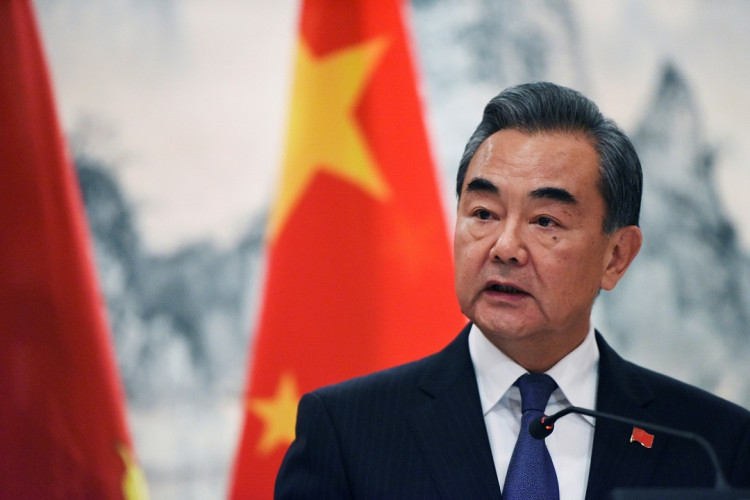As the Trump administration ramps up tariff pressure on Beijing, Chinese Foreign Minister Wang Yi on Tuesday called on Britain and the European Union to uphold multilateral trade, urging closer cooperation to counter what he described as unilateral moves by the United States.
In a phone call with British Foreign Secretary David Lammy, Wang stated that China and Britain "had a responsibility to uphold international order in the face of 'rampant unilateral bullying'," according to a Chinese foreign ministry statement. Wang also said China is ready to work with Britain to "eliminate all distractions" and emphasized the need "to safeguard multilateral trading systems."
Separately, in a phone call with Austrian Foreign Minister Beate Meinl-Reisinger, Wang said China and the EU "should shoulder international responsibility to defend multilateral trade and build an open world economy." He also added that China was willing to "further strengthen high-level exchanges" with the EU.
The calls come as the European Commission pushed back against reports that the White House has been pressuring countries to decouple from China as a precondition for trade deals with the United States.
"The European Union will not decouple from the Chinese economy as a condition for reaching a trade deal with Donald Trump's administration," the Commission said Tuesday, amid reports the U.S. has asked partner nations to make a choice between Washington and Beijing.
Trump has not confirmed such a demand but suggested in a Fox News interview that "maybe they should do that" when asked whether Latin American nations should decouple from China. The comment sparked an immediate response from Beijing.
"China firmly opposes any party reaching a deal at the expense of China's interests," the Ministry of Commerce said Monday. "If this happens, China will never accept it and will resolutely take countermeasures in a reciprocal manner. China is determined and capable of safeguarding its own rights and interests. No one can remain immune to the impact of unilateralism and protectionism."
The EU has sought to distance itself from that standoff. Podestà emphasized that the only red line in EU trade negotiations is the "safety and well-being" of its citizens, referencing the bloc's food safety rules, which the Trump administration has labeled non-tariff barriers. "The rest is all to be discussed," she added.
European Commission President Ursula von der Leyen has moderated her previously hawkish tone on China, now favoring a "transactional" foreign policy while preserving safeguards in strategic sectors. Still, she recently warned, "We cannot absorb global overcapacity nor will we accept dumping on our market."
Beijing has responded to U.S. tariffs by restricting exports of key minerals and rare earths. Von der Leyen raised concerns about these disruptions in a recent call with Chinese Premier Li Qiang, urging joint responsibility between the EU and China "to support a strong reformed trading system, free, fair and founded on a level playing field." The Chinese account of the conversation struck a more positive note, highlighting a "momentum of steady growth" in bilateral ties.
Both sides confirmed that a China-EU summit will take place in July. In 2023, China was the second-largest destination for EU goods (€223.5 billion), while it remained the bloc's top import source (€516.2 billion), ahead of the U.S. (€346.7 billion). The U.S., meanwhile, was the EU's largest export market (€501.9 billion), according to Eurostat.






